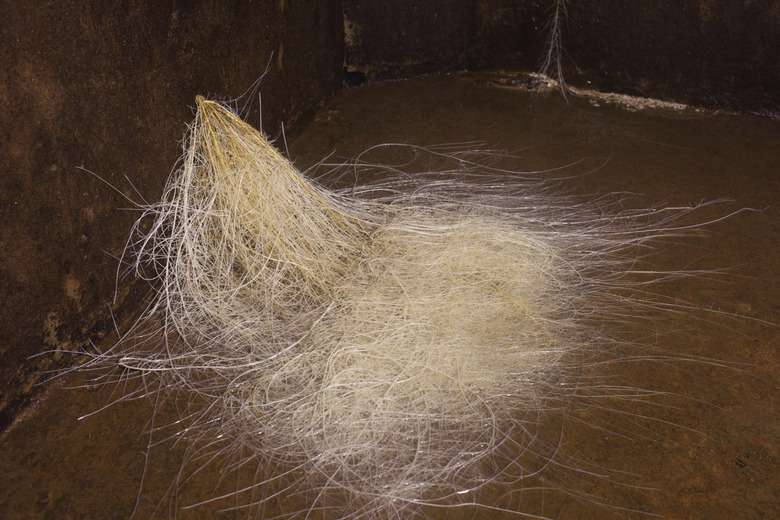Homemade Root Killer For Sewer Lines
Sewage may be waste to you, but to the roots growing near your sewer line, it's a nutritious meal, and they will use any small opening in the pipes to get to it. Once they grow large enough, slow-running toilets and sewage backups are the result. The most effective chemicals for killing them must be handled by professionals, but you can make your own root-killing remedies from easy-to-obtain chemicals to control them.
Foaming Root Killers
Foaming Root Killers
Roots generally enter the sewer pipes from above, so using any type of chemical that combines with water may pass through the pipes without contacting them at all. Professional plumbers handle this by using a foaming mixture of chemicals, and you can purchase a less-toxic mixture than the one they use at most home and garden centers, and online. It contains dichlobenil, which is safe even for septic systems. If you're reluctant to introduce this chemical into a septic system or the municipal waste system, you can employ one of the traditional alternatives: rock salt or copper sulfate.
Crystalline Root Killers
Crystalline Root Killers
Both copper sulfate — which you can buy in crystalline form at a hardware store — and rock salt kill roots on contact, and if your pipes run sluggishly, flushing either one down the lowest toilet in the house should improve the situation. Copper sulfate is most effective if you pour about 1/2 cup of crystals into the toilet and flush repeatedly. The same amount of rock salt is also effective, especially if you take the time to break it into smaller crystals with a hammer before flushing it. These chemicals are especially effective on clay pipes because they leach into the clay and prevent new roots from growing.
Homemade Foam Root Killer
Homemade Foam Root Killer
You can add foaming action to a salt solution by adding baking soda and vinegar. To make this environmentally friendly root killer, mix a cup each of regular table salt, baking soda, vinegar and boiling water and immediately flush it down the toilet. When mixed together, baking soda and vinegar begin to fizz, and the fizzing action allows the solution to fill the pipes so the salt can come in contact with the obstructing roots. The solution kills roots on contact, but it takes time for the dead roots to wash away, so you won't notice immediate results.
Preventing Root Incursion
Preventing Root Incursion
Once roots have blocked your sewer, you may be able to kill them, but you can't remove them quickly unless you use an auger. To later prevent blockages, it's best to keep roots away. One strategy is to saturate the ground around the pipe with a root killer, such as copper sulfate. To do this, dig a small, deep hole — or a series of holes — near a problem part of the pipe. Insert a length of 1 1/2-inch pipe into each hole, pour copper sulfate crystals into the pipes and then fill the pipes with boiling water. Cap the pipes and leave them in place so you can repeat the treatment periodically.
